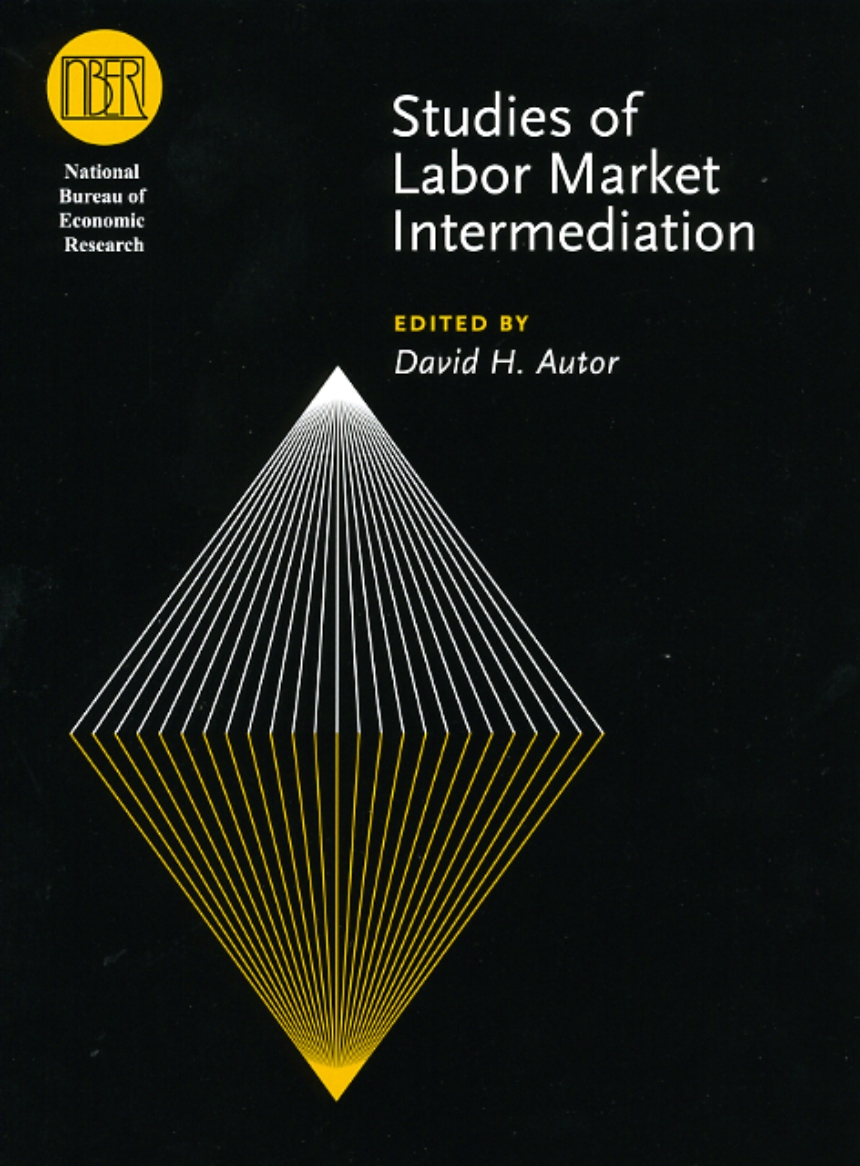Studies of Labor Market Intermediation
From the traditional craft hiring hall to the Web site Monster.com, a multitude of institutions exist to facilitate the matching of workers with firms. The diversity of such Labor Market Intermediaries (LMIs) encompasses criminal records providers, public employment offices, labor unions, temporary help agencies, and centralized medical residency matches. Studies of Labor Market Intermediation analyzes how these third-party actors intercede where workers and firms meet, thereby aiding, impeding, and, in some cases, exploiting the matching process.
By building a conceptual foundation for analyzing the roles that these understudied economic actors serve in the labor market, this volume develops both a qualitative and quantitative sense of their significance to market operation and worker welfare. Cross-national in scope, Studies of Labor Market Intermediation is distinctive in coalescing research on a set of market institutions that are typically treated as isolated entities, thus setting a research agenda for analyzing the changing shape of employment in an era of rapid globalization and technological change.
456 pages | 1 halftone, 27 line drawings, 123 tables | 6 x 9 | © 2009
National Bureau of Economic Research Conference Report
Economics and Business: Business--Industry and Labor
Table of Contents
Introduction
David H. Autor
I. Reducing Search Costs
1. Jobs Online
Alice O. Nakamura, Kathryn L. Shaw, Richard B. Freeman, Emi Nakamura, and Amanda Pyman
2. The Internet and Job Search
Betsey Stevenson
II. Mitigating Adverse Selection
3. Effect of Employer Access to Criminal History Data on the Labor Market Outcomes of Ex-Offenders and Non-Offenders
Keith Finlay
4. Do On-Line Labor Market Intermediaries Matter? The Impact of AlmaLaurea on the University-to-Work Transition
Manuel F. Bagues and Mauro Sylos Labini
5. Private Deception and the Rise of Public Employment Offices in the United States, 1890-1930
Woong Lee
6. Mortgage Broker Regulations That Matter: Analyzing Earnings, Employment, and Outcomes for Consumers
Morris M. Kleiner and Richard M. Todd
III. Solving Collective Action Problems
7. The Effects of a Centralized Clearinghouse on Job Placement, Wages, and Hiring Practices
Muriel Niederle and Alvin E. Roth
8. Helping Workers Online and Offline:Innovations in Union and Worker Organization Using the Internet
Richard B. Freeman and M. Marit Rehavi
IV. Solving Information Problems: The Special Case of Temporary Help Agencies
9. Temporary Help Services Employment in Portugal, 1995-2000
René Böheim and Ana Rute Cardoso
10. Does Temporary Help Work Provide a Stepping Stone to Regular Employment?
Michael Kvasnicka
11. Temporary Help Agencies and the Advancement Prospects of Low Earners
Fredrik Andersson, Harry J. Holzer, and Julia Lane
12. The Role of Temporary Help Employment in Low-wage Worker Advancement
Carolyn J. Heinrich, Peter R. Mueser and Kenneth R. Troske
